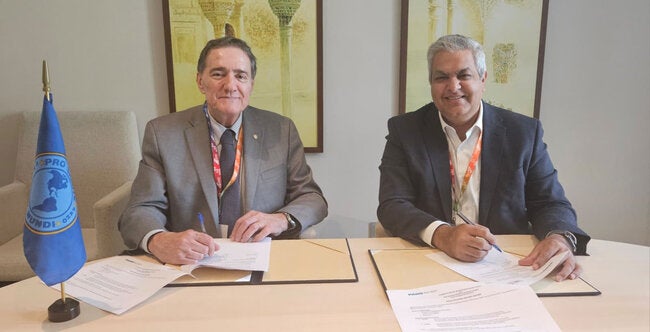WP_Post Object
(
[ID] => 126380
[post_author] => 3
[post_date] => 2024-06-21 08:53:58
[post_date_gmt] => 2024-06-21 06:53:58
[post_content] => [vc_row][vc_column width="2/5"][vc_single_image image="126382" img_size="full" alignment="center" css=""][/vc_column][vc_column width="3/5"][vc_column_text css=""]Me llamo Jonatan Yuste Carrasco y fui víctima de contenciones mecánicas durante mi primer ingreso hospitalario. Una correa de contención mecánica puede tener similitudes con la correa de un animal doméstico, pero no se parece en nada, ya que los animales domésticos, al menos, tienen el consuelo de moverse de “manera libre”. Las correas mecánicas están hechas y pensadas exclusivamente para limitar cualquier tipo de movimiento sobre una cama, es decir, no podrás mover las piernas, los brazos, la cabeza o el tronco, ni tan siquiera 10 centímetros.
Yo tenía 24 años cuando ocurrió este hecho. Particularmente no lo recuerdo de manera grata, aunque no creo que nadie tenga un buen recuerdo de esta situación. Es cierto que entré exaltado y alterado en Urgencias del hospital. Previo ingreso, me ofrecieron subir a la camilla para ser tratado. A pesar de aceptar de buena gana tumbarme en la camilla y ser ingresado en el hospital, y acceder a ponerme una inyección (para calmarme), insisto en lo de que estuve conforme, me sujetaron 4 enfermeros y enfermeras, 2 médicos y médicas, 1 bedel y 2 guardias de seguridad del hospital, dejándome inmóvil y alterándome más aún, debido a la sensación de cohibición total.
Al despertar en la sala de observación atado de brazos, piernas y cadera, mis sensaciones no fueron de alegría en absoluto, sino de una desesperanza plena y corroída, aunque fue un sentir fugaz debido a la sedación. Al mediodía del día siguiente ya no tenía esas correas por “buen comportamiento", pero recuerdo al vecino de habitación de esa fatídica cuarta planta del hospital. Él no tuvo esa “misma suerte”, por decir algo. Estuvo contenido mecánicamente los 20 días que duró mi ingreso, excepto dos.
Volvieron a maniatarme, en este caso entre 2 guardias de seguridad, cuando mostré mi queja porque la visita familiar fue muy corta; apenas sentí que estuvieron conmigo 5 minutos, pero no bastó mi queja, ni valió mi sentir ni decir de nada, para que el servicio privado de ese hospital público murciano tuviera licencia para apresarme, tumbarme y atarme de nuevo a la cama de pies, manos y cadera durante las siguientes horas.
Realmente una experiencia similar a esta y con la trascendencia que puede tener la magnitud de los hechos, solo me lleva a pensar en qué tipo de servicio es el que se enseña y se lleva a la práctica profesionalmente en lugares de “cuidados”. Puede que leer esto te haya conmovido un poquito, o puede que haya sido insignificante porque el sufrimiento de algunas personas con problemas de salud mental, o incluso de sus familias durante el acompañamiento, ha podido ser más traumatizante. Pero no escribo estas palabras para competir por lo padecido.[/vc_column_text][/vc_column][/vc_row][vc_row][vc_column][vc_column_text css=""]Decir que esta experiencia me provocó, entre otras cosas, inseguridades los siguientes años, miedo a las personas y estar sobremedicado. NO recibí ningún tipo de diagnóstico, ni información sobre el nivel de gravedad o qué me pasaba, por parte del hospital, y sufrí la indiferencia total en el trato por parte de algunos sanitarios y sanitarias, aunque es cierto que hay otras y otros que saben empatizar mucho.
Han pasado 11 años desde aquello y he podido pasar muchas páginas. Rehíce mi vida sentimental, profesional, social, afectiva o familiar en muchas ocasiones. Tengo muy claro que es crucial luchar y defender que se respeten los derechos fundamentales para todas las personas, y en especial, para las personas con discapacidad. Es esencial conseguir contenciones cero, en cualquier tipo de tratamiento y atención sanitaria, para lograr un mundo más amable, sensato y humano.
Artículo de opinión, pertenenciente a la sección "La Voz de SALUD MENTAL ESPAÑA", publicado en el nº 3 de la Revista Encuentro, 2023.[/vc_column_text][/vc_column][/vc_row][vc_row][vc_column][vc_separator css=""][/vc_column][/vc_row][vc_row][vc_column][vc_btn title="Leer el Informe sobre tratamientos ingresos involuntarios en salud mental " color="success" align="center" css="" link="url:https%3A%2F%2Fconsaludmental.org%2Fcentro-documentacion%2Finforme-tratamientos-ingresos-involuntarios-salud-mental%2F|target:_blank"][/vc_column][/vc_row][vc_row][vc_column][vc_column_text css=""][/vc_column_text][/vc_column][/vc_row][vc_row][vc_column width="1/4"][vc_btn title="VOLVER A NOTICIAS" style="gradient-custom" gradient_custom_color_1="#ffffff" gradient_custom_color_2="#ffffff" gradient_text_color="#005b50" shape="square" align="center" i_icon_fontawesome="fa fa-chevron-circle-left" add_icon="true" link="url:%2Fnoticias%2F|title:NOTICIAS||"][/vc_column][vc_column width="1/4"][/vc_column][vc_column width="1/4"][/vc_column][vc_column width="1/4"][/vc_column][/vc_row]
[post_title] => Conseguir contenciones cero
[post_excerpt] => Artículo de opinión de Jonatan Yuste Carrasco, representante de la Federación Salud Mental Región de Murcia en el Comité Pro Salud Mental En Primera Persona de SALUD MENTAL ESPAÑA.
[post_status] => publish
[comment_status] => closed
[ping_status] => open
[post_password] =>
[post_name] => conseguir-contenciones-cero-revista-encuentro
[to_ping] =>
[pinged] =>
Revista Encuentro nº 3 año 2023
[post_modified] => 2024-06-21 09:02:17
[post_modified_gmt] => 2024-06-21 07:02:17
[post_content_filtered] =>
[post_parent] => 0
https://consaludmental.org/?p=126380 => https://consaludmental.org/?p=126380
[menu_order] => 0
[post_type] => post
[post_mime_type] =>
[comment_count] => 0
[filter] => raw
)
Opinion article by Jonatan Yuste Carrasco, representative of the Murcia Region Mental Health Federation in the First Person Mental Health Committee of SALUD MENTAL ESPAÑA.
My name is Jonatan Yuste Carrasco and I was a victim of mechanical restraints during my first hospital admission.. A mechanical restraint leash may have similarities to a pet leash, but is nothing alike, as pets, at least, have the comfort of “free-range” movement. Mechanical straps are made and designed exclusively to limit any type of movement on a bed, that is, you will not be able to move your legs, arms, head or trunk, not even 10 centimeters.
I was 24 years old when this event occurred. I don’t particularly remember it in a pleasant way, although I don’t think anyone has a good memory of this situation. It is true that I entered the hospital emergency room excited and upset. Upon admission, they offered me to get on the stretcher to be treated. Despite willingly agreeing to lie down on the stretcher and be admitted to the hospital, and agreeing to give myself an injection (to calm me down), I insist that I was satisfied, 4 male and female nurses, 2 male and female doctors, 1 janitor and 2 hospital security guards, leaving me immobile and even more upset, due to the feeling of total inhibition.
When I woke up in the observation room tied at the arms, legs, and hips, my sensations were not of joy at all, but of complete and corroded hopelessness, although it was a fleeting feeling due to the sedation. At noon the next day I no longer had those straps for “good behavior,” but I remember my roommate on that fateful fourth floor of the hospital. He didn’t have that “same luck,” so to speak. It was mechanically contained for the 20 days that my entry was restricted, except for two.
They tied me up again, in this case between 2 security guards, when I complained because the family visit was very short; I barely felt that he was with me for 5 minutes, but my complaint was not enough, nor was my feeling or saying anything worth it, for the private service of that public hospital in Murcia to have the license to arrest me, lay me down and tie my feet and hands back to the bed. . and hip for the next few hours.
Really, an experience similar to this one and with the significance that the magnitude of the events can have, only leads me to think about what type of service is taught and put into practice professionally in “care” places. Reading this may have moved you a little, or it may have been insignificant because the suffering of some people with mental health problems, or even their families during accompaniment, could have been more traumatizing. But I do not write these words to compete for what I have suffered.
To say that this experience caused me, among other things, insecurities in the following years, fear of people and being overmedicated. I did NOT receive any type of diagnosis, nor information about the level of severity or what was happening to me, from the hospital, and I suffered total indifference in treatment from some health workers.Although it is true that there are others who know how to empathize a lot.
11 years have passed since that and I have been able to turn many pages. I rebuilt my sentimental, professional, social, emotional or family life on many occasions. I am very clear that it is crucial to fight and defend the respect of fundamental rights for all people, and especially for people with disabilities. It is essential to achieve zero containment, in any type of treatment and health care, to achieve a kinder, more sensible and humane world..
Opinion article, belonging to the section “La Voz de SALUD MENTAL ESPAÑA”, published in No. 3 of Encuentro Magazine, 2023.







